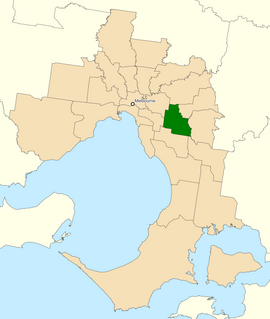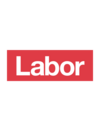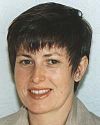Division of Chisholm
| Chisholm Australian House of Representatives Division | |||||||||||||||
|---|---|---|---|---|---|---|---|---|---|---|---|---|---|---|---|
 Division of Chisholm in Victoria, as of the 2022 federal election | |||||||||||||||
| Created | 1949 | ||||||||||||||
| MP | Carina Garland | ||||||||||||||
| Party | Labor | ||||||||||||||
| Namesake | Caroline Chisholm | ||||||||||||||
| Electors | 109,973 (2022) | ||||||||||||||
| Area | 65 km2 (25.1 sq mi) | ||||||||||||||
| Demographic | Inner metropolitan | ||||||||||||||
| |||||||||||||||
The Division of Chisholm (/ˈtʃɪzəm/) is an Australian Electoral Division in Victoria located in the eastern suburbs of Melbourne. The Division was created in 1949 and is named after Caroline Chisholm, a social worker and promoter of women's immigration.[1] The Division is an Inner Metropolitan area.[1]
The Division's current MP is Carina Garland of the Australian Labor Party. The constituency is considered a key marginal constituency targeted by both Labor and the Liberal Party of Australia.[2]
Geography
[edit]Since 1984, federal electoral division boundaries in Australia have been determined at redistributions by a redistribution committee appointed by the Australian Electoral Commission. Redistributions occur for the boundaries of divisions in a particular state, and they occur every seven years, or sooner if a state's representation entitlement changes or when divisions of a state are malapportioned.[3]
Since 2022, the Division has encompassed the suburbs of Ashwood, Blackburn, Blackburn South, Box Hill, Box Hill South, Burwood, Burwood East, Glen Waverley, Laburnum, Mount Waverley, Notting Hill, Syndal and Wheelers Hill. Additionally, the Division also includes parts of Chadstone, Clayton, Mulgrave and Oakleigh.[1]
The Division of Chisholm consists of part of the local government areas of Monash City Council and Whitehorse City Council.[1]
Demographics
[edit]The Division of Chisholm has a diverse population, with around 54% of its residents being born overseas. Approximately 55% of the population speak a language other than English at home, with Chinese Australians making around 30% of the population.[4] The seat has the largest Chinese community of any electorate in all of Australia.
History
[edit]
On its original boundaries, it was a comfortably safe Liberal seat centred on Camberwell. However, successive redistributions from 1980 onward have moved the electorate south-east, taking in strongly Labor-voting suburbs to balance out the relatively affluent Liberal-leaning suburbs in the north of the seat, and making the seat marginal. The first member for Chisholm, Sir Wilfrid Kent Hughes, was one of Australia's most distinguished soldiers and a former Olympian, who held the seat until his death on 31 July 1970.
Labor finally took the seat in the 1983 landslide that brought Bob Hawke to power, only to lose it in 1987. Anna Burke became the second Labor member ever to win it in 1998 election and held it until her retirement in 2016. Julia Banks won the seat for the Liberals at the 2016 election, becoming the only Liberal challenger to take a seat from Labor at that election. Taking this seat off Labor turned out to be crucial in ensuring the Coalition retaining its majority; it meant they had 76 seats, as opposed to the 75 they would have had if Labor had retained this seat.
On 27 November 2018, Banks resigned from the Liberal Party due to disaffection with the party resulting from the leadership spill which removed Malcolm Turnbull as Prime Minister and the treatment of women within the party. Banks announced she would sit on the crossbench as an independent, but guarantee confidence and supply to the Morrison government.[5]
Gladys Liu won Chisholm in the 2019 election for the Liberal Party against Jennifer Yang by less than 0.6%, becoming the first Chinese Australian to enter the lower house.[6][7]
In 2022, Labor's Dr Carina Garland won the seat from Liberal incumbent Liu. The loss of the seat in 2022 to Labor has been attributed to the notably large swings against the Liberal Party among Chinese Australian voters which has cost the Liberal Party many key seats.[8]
Members
[edit]| Image | Member | Party | Term | Notes | |
|---|---|---|---|---|---|

|
Sir Wilfrid Kent Hughes (1895–1970) |
Liberal | 10 December 1949 – 31 July 1970 |
Previously held the Victorian Legislative Assembly seat of Kew. Served as minister under Menzies. Died in office | |

|
Tony Staley (1939–2023) |
19 September 1970 – 19 September 1980 |
Served as minister under Fraser. Retired | ||

|
Graham Harris (1937–) |
18 October 1980 – 5 March 1983 |
Lost seat | ||

|
Helen Mayer (1932–2008) |
Labor | 5 March 1983 – 11 July 1987 |
Lost seat | |

|
Michael Wooldridge (1956–) |
Liberal | 11 July 1987 – 3 October 1998 |
Served as minister under Howard. Transferred to the Division of Casey | |

|
Anna Burke (1966–) |
Labor | 3 October 1998 – 9 May 2016 |
Served as Speaker during the Gillard and Rudd Governments. Retired | |

|
Julia Banks (1962–) |
Liberal | 2 July 2016 – 27 November 2018 |
Did not contest in 2019. Failed to win the Division of Flinders | |
| Independent | 27 November 2018 – 18 May 2019 | ||||

|
Gladys Liu (1964–) |
Liberal | 18 May 2019 – 21 May 2022 |
Lost seat | |

|
Carina Garland | Labor | 21 May 2022 – present |
Incumbent |
Election results
[edit]| Party | Candidate | Votes | % | ±% | |
|---|---|---|---|---|---|
| Labor | Carina Garland | 38,692 | 40.09 | +3.77 | |
| Liberal | Gladys Liu | 35,038 | 36.30 | −7.70 | |
| Greens | Sarah Newman | 12,130 | 12.57 | +1.94 | |
| United Australia | Melanie Kempson | 2,295 | 2.38 | +0.22 | |
| Liberal Democrats | Ethelyn King | 1,620 | 1.68 | +1.68 | |
| Independent | Dominique Murphy | 1,590 | 1.65 | +1.65 | |
| One Nation | Aaron Tyrrell | 1,377 | 1.43 | +1.43 | |
| Animal Justice | Rod Whitfield | 1,122 | 1.16 | −0.09 | |
| Justice | Thomas Stanfield | 946 | 0.98 | −0.45 | |
| Independent | Wayne Tseng | 757 | 0.78 | +0.78 | |
| Federation | Anthea Antonie | 567 | 0.59 | +0.59 | |
| Australian Citizens | Ryan Dare | 384 | 0.40 | +0.40 | |
| Total formal votes | 96,518 | 95.30 | −0.44 | ||
| Informal votes | 4,763 | 4.70 | +0.44 | ||
| Turnout | 101,281 | 92.20 | −2.61 | ||
| Two-party-preferred result | |||||
| Labor | Carina Garland | 54,448 | 56.41 | +6.86 | |
| Liberal | Gladys Liu | 42,070 | 43.59 | −6.86 | |
| Labor gain from Liberal | Swing | +6.86 | |||

 indicates at what stage the winning candidate had over 50% of the votes and was declared the winner.
indicates at what stage the winning candidate had over 50% of the votes and was declared the winner.Graphs are unavailable due to technical issues. There is more info on Phabricator and on MediaWiki.org. |
References
[edit]- ^ a b c d Australian Electoral Commission. "Profile of the electoral division of Chisholm (Vic)". Australian Electoral Commission. Retrieved 19 July 2024.
- ^ "'For the first time ever I'm undecided': This seat could decide who forms government, but what are voters saying?". ABC News. 28 April 2022. Retrieved 6 May 2022.
- ^ Muller, Damon (14 November 2017). "The process of federal redistributions: a quick guide". Parliament of Australia. Retrieved 19 April 2022.
- ^ "2021 Chisholm, Census All persons QuickStats | Australian Bureau of Statistics". Australian Bureau of Statistics 2021. Retrieved 26 January 2024.
- ^ Chang, Charis (27 November 2018). "Julia Banks delivers scathing review of major parties after resigning from the Liberal Party". news.com.au. Retrieved 27 November 2018.
- ^ "Gladys Liu becomes first Chinese-Australian woman to enter lower house". SBS News. Retrieved 16 August 2019.
- ^ Dziedzic, foreign affairs reporter Stephen (21 May 2019). "Morrison secures majority Government with historic win of first female Chinese-Australian MP in Chisholm". ABC News. Retrieved 16 August 2019.
- ^ Knott, Matthew. "Chinese-Australian voters punished Coalition for hostile rhetoric". Sydney Morning Herald. Sydney Morning Herald. Retrieved 3 February 2024.
- ^ Chisholm, VIC, 2022 Tally Room, Australian Electoral Commission.
